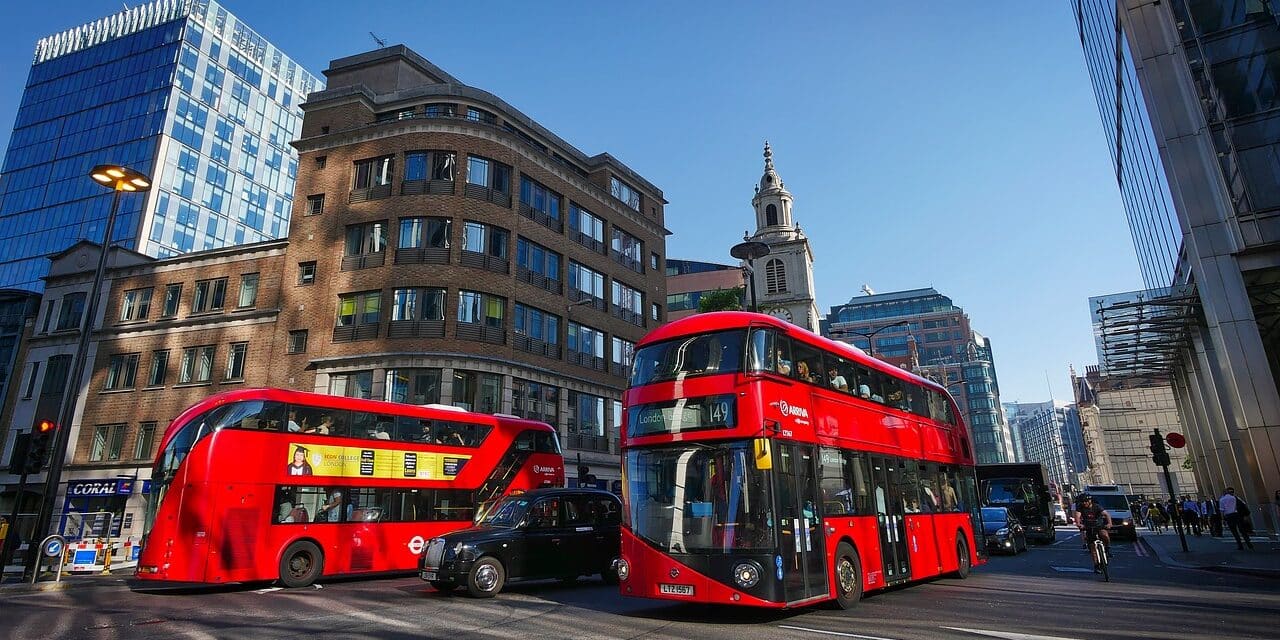Millions of people across England will benefit from lower fares, improved reliability and better bus services, as the government delivers a further £80 million to support buses into 2025.
Today (28 September 2023), Roads Minister Richard Holden confirmed allocations for 64 local authorities across England from the £80 million investment in the bus service improvement plan+ (BSIP+) for 2024 to 2025.
Local authorities can use the funding to improve local buses in several ways, such as by bringing in new services or routes, extending timetables through new morning or evening buses or making tickets cheaper through reduced fares for elderly or young people, depending on what will be most valuable in their local area.
The investment could also be used to protect hundreds of bus services with low passenger numbers so that people who rely on them for essential services can continue to access their local bus.
Advertisement
Roads Minister Richard Holden said:
Buses are the most popular form of public transport and millions of people across the country from the Tees Valley to Torbay rely on their local service to get to work, attend medical appointments and see loved ones.
We are providing a further £80 million to help local authorities improve and protect essential services, delivering for local communities across the country by enhancing transport connections, supporting passengers and growing the economy.
The funding follows the first £80 million BSIP+ investment for 2023 to 2024, and the previous £1 billion from the first BSIP funding announced in 2022.
It comes on top of a further £140 million announced in May from the extension of the Bus Service Operators Grant (BSOG), taking the total to continue supporting and protecting bus services across England to £300 million into 2025.
To help people with the cost of living and save on everyday travel costs, the government also invested £200 million to extend the bus fare cap, with single bus tickets capped at £2 outside London until the end of October 2023 and then at £2.50 until 30 November 2024.
The £2 fare cap has cut travel costs, particularly in rural areas, where buses are crucial for so many people to get around, with the average fare dropping by 10.8% in rural and non-metropolitan parts of England.
The measures take total government support to protect and improve bus services while keeping fares low to £3.5 billion since 2020.
Advertisement
While it is the responsibility of bus operators and local transport authorities to ensure an adequate provision of bus routes, the government continues to work closely with the sector to support local areas in dealing with changing travel patterns while managing pressures on the taxpayer.
Janette Bell, Managing Director of First Bus, said:
We welcome the certainty provided by today’s confirmation of the next tranche of local authority funding allocations. We look forward to working together with our local authority partners to deliver the best services possible for our customers.
At First Bus, we are driven by a passion to get more people using the bus and we welcome any funding that makes taking the bus an easier travel choice.
Today also marks the publication of the £2 Bus Fare Cap Second Interim Evaluation Report, analysing the initial impact of the cap in January and February 2023, the first 2 months of the measure.
According to the report, the “Get Around for £2” scheme has so far encouraged people to get back on the bus, with almost half of respondents saying the fare cap is the main reason they are using the bus more. Over 50 million single bus tickets were sold in England over January and February 2023, two-thirds of which were capped.
Silviya Barrett, from Campaign for Better Transport, said:
We’re pleased the £2 bus fare cap we campaigned for has been a success, reducing fares and boosting passenger numbers.
Advertisement
The additional funds for local authorities announced today are also welcome and we hope that this is just the start of ongoing investment in bus networks across the country.
In addition to the £3.5 billion to support buses since 2020, the government has provided £5.7 billion to 8 mayoral combined authorities in England to support integrated, cross-modal transport networks over the next 5 years through the City Region Sustainable Transport Settlement (CRSTS), including supporting bus infrastructure.
The Department for Transport has also recently confirmed £129 million to roll out hundreds more zero emission buses, with the first £25 million prioritised specifically for rural communities. This brings total government investment in new zero-emission buses to almost £500 million.


















